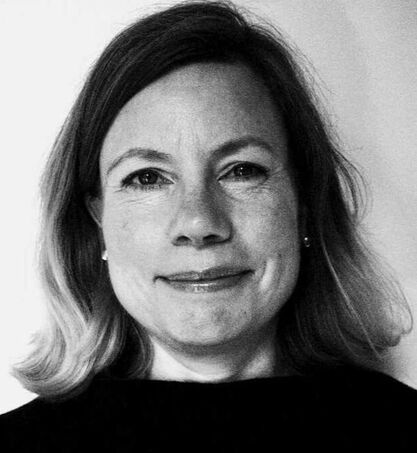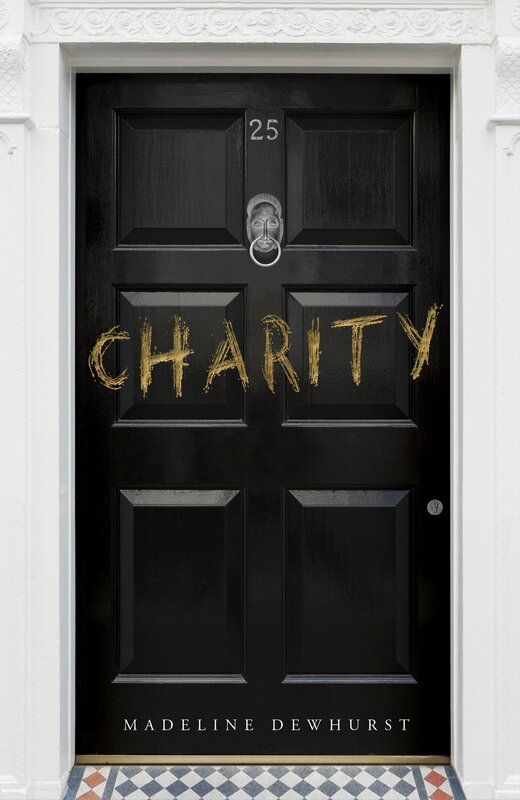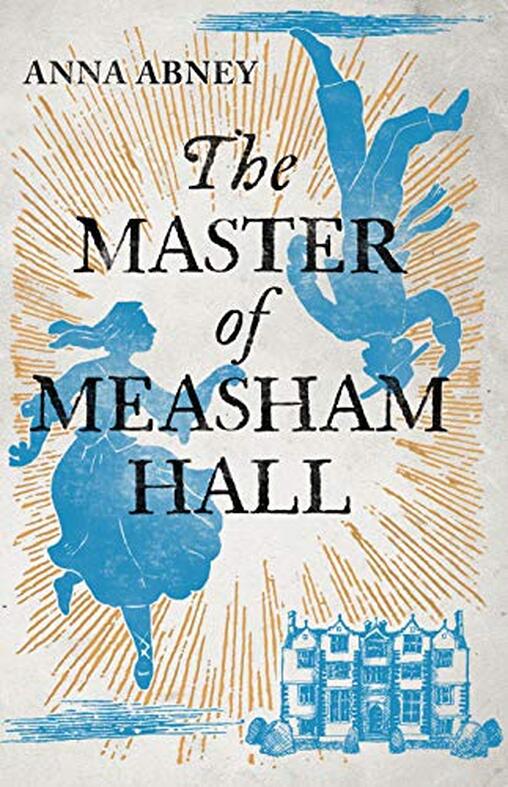
It gives me great pleasure to welcome Madeline Dewhurst onto the website today. Madeline has had one novel published and another one comes out this July.
Alex: Tell me a bit about yourself.
Madeline: I grew up in Highbury, North London. I always knew when Arsenal had scored as you could hear the roar of the crowd from our street. When I was twenty I spent a year living in a commune in Yorkshire. Then when I was twenty-one I moved to Belfast and did a BA in English Literature at Queen’s University. I spent thirteen years living in Ireland, North and South. I married a Dubliner and both my children were born in Ireland, though we moved back to London when they were small.
As soon as I was able to write I started jotting down stories and poems (the poems were generally pretty morbid and involved graveyards and drowned maidens). I’ve written part-time all my life, but it is only this year that I’ve had two novels published; Charity came out in April with Lightning Books and The Master of Measham Hall is published in July 2021 with Duckworth Books (under the name Anna Abney).
Alex: How would you describe your writing, and are there particular themes that you like to explore?
Madeline: I’m very interested in ideas about home; what home means to different people on both a literal and a metaphorical level and how this can shape a life. As an extension of that my novels also explore ideas about national identity and what it means to be English or British. I think good storytelling is fundamental though; I’ve been delighted by how many readers have said they found my novels gripping.
Alex: Tell me a bit about yourself.
Madeline: I grew up in Highbury, North London. I always knew when Arsenal had scored as you could hear the roar of the crowd from our street. When I was twenty I spent a year living in a commune in Yorkshire. Then when I was twenty-one I moved to Belfast and did a BA in English Literature at Queen’s University. I spent thirteen years living in Ireland, North and South. I married a Dubliner and both my children were born in Ireland, though we moved back to London when they were small.
As soon as I was able to write I started jotting down stories and poems (the poems were generally pretty morbid and involved graveyards and drowned maidens). I’ve written part-time all my life, but it is only this year that I’ve had two novels published; Charity came out in April with Lightning Books and The Master of Measham Hall is published in July 2021 with Duckworth Books (under the name Anna Abney).
Alex: How would you describe your writing, and are there particular themes that you like to explore?
Madeline: I’m very interested in ideas about home; what home means to different people on both a literal and a metaphorical level and how this can shape a life. As an extension of that my novels also explore ideas about national identity and what it means to be English or British. I think good storytelling is fundamental though; I’ve been delighted by how many readers have said they found my novels gripping.

Alex: Are you a writer that plans a detailed synopsis or do you set out with a vague idea and let the story unfold as you write?
Madeline: I’ve always started with a fairly strong idea about the story I want to tell, though not always sure of how the plot will unfold. Charity was quite carefully plotted out, but with The Master of Measham Hall the characters took over and dictated the plot. I’m currently writing the sequel to The Master of Measham Hall and have a detailed synopsis down for that one (though again the characters might rebel and lead me in a new direction!).
Alex: Tell us about your latest novel.
Madeline: It’s a historical novel set in 1665, five years after King Charles II has returned from exile. The scars of the English Civil Wars are yet to heal and now the plague engulfs the land. Alethea Hawthorne is safe inside the walls of the Calverton household as a companion to their daughter. She waits in anticipation of her brother William’s pardon for killing a man in a duel before they can both return to their ancestral home in Measham Hall.
But when Alethea suddenly finds herself cast out on the streets of London, a long road to Derbyshire lies ahead of her. Militias have closed their boroughs off to outsiders for fear of contamination. Fortunately, Jack appears, an unlikely travelling companion who helps this determined country girl to navigate a perilous new world of religious dissenters, charlatans and a pestilence that afflicts peasants and lords alike. The Master of Measham Hall is a fast-paced, multi-layered novel that explores the social divides at the heart of the Restoration period.
Madeline: I’ve always started with a fairly strong idea about the story I want to tell, though not always sure of how the plot will unfold. Charity was quite carefully plotted out, but with The Master of Measham Hall the characters took over and dictated the plot. I’m currently writing the sequel to The Master of Measham Hall and have a detailed synopsis down for that one (though again the characters might rebel and lead me in a new direction!).
Alex: Tell us about your latest novel.
Madeline: It’s a historical novel set in 1665, five years after King Charles II has returned from exile. The scars of the English Civil Wars are yet to heal and now the plague engulfs the land. Alethea Hawthorne is safe inside the walls of the Calverton household as a companion to their daughter. She waits in anticipation of her brother William’s pardon for killing a man in a duel before they can both return to their ancestral home in Measham Hall.
But when Alethea suddenly finds herself cast out on the streets of London, a long road to Derbyshire lies ahead of her. Militias have closed their boroughs off to outsiders for fear of contamination. Fortunately, Jack appears, an unlikely travelling companion who helps this determined country girl to navigate a perilous new world of religious dissenters, charlatans and a pestilence that afflicts peasants and lords alike. The Master of Measham Hall is a fast-paced, multi-layered novel that explores the social divides at the heart of the Restoration period.

Alex: What was the first book you read?
Madeline: The first book I ever read was an abridged version of Lorna Doone when I was seven. My parents and teacher had given up on me learning how to read. I thought the Peter and Jane books we were given at school were so boring, what was the point? But I was taken to our local library every Saturday and one day I spotted a mobile shelf stacked with a row of small books. Something about the size and layout of these books appealed to me. I took Lorna Doone home and to my parents’ amazement read it from cover to cover.
Alex: How much research do you do and what does it usually entail?
Madeline: I do a huge amount of research (far too much probably). This is partly the legacy of doing a PhD and feeling I have to get everything historically right. I read a lot of history books and articles as well as contemporary material – letters, diaries, pamphlets, newspaper articles and fiction. For Charity I researched colonial era documents held as The National Archives in London, as well as documents at the Archives & Special Collections at SOAS Library. I read a lot of academic books and articles on the Mau Mau rebellion and the British response to it. I also read a lot of memoirs, as well as fictional work, by Kenyans (and settlers) who lived through the period.
I find contemporary fiction gives a stronger sense of the period and everyday details like people’s attitudes and how they spoke, than history books.
Alex: Do you ever base your characters on people you have encountered in real life?
Madeline: Not intentionally! I might borrow certain characteristics or turns of phrase, but part of the joy for me is creating new, imaginary characters. At times, Edith, one of the narrators in Charity, reminded me of my grandmother. I also used a line spoken by someone I met in a pub. It was one of those times when someone says something racist and homophobic and I was so gobsmacked I couldn’t think of a good response, so I decided to put it in the novel to make amends.
Alex: Which was the last book you read that blew you away?
Madeline: I loved Luster by Raven Leilani. It’s written with the kind of prose that you have to stop and savour; so many electrifying phrases that are both original and true. I loved the probing artist’s eye of the narrator and the complex relationships she has with the other characters, especially with her lover’s wife, which is both antagonistic and supportive.
Alex: How do you market your books?
Madeline: My editors told me to get on social media, so I’ve been posting on Instagram, Twitter and Facebook. I had a great, lockdown Zoom launch for Charity and was really pleased with the number of people who attended. It would have been fun to do something in a bookshop, but a virtual launch meant people from all over the world could tune in. We also had a great blog tour.
For The Master of Measham Hall, Duckworth are launching a newsletter which I’m writing articles for. They’re also offering advance chapters and insights into the sequel. We did a vote on different covers on social media which was fun.
Alex: What are your interests aside from writing? And what do you do to unwind?
Madeline: I love gardening and if I’m not reading or walking the dog, I can be found on my vegetable plot or flower borders, sowing, weeding and contemplating. I also enjoy watching films and TV dramas.
Alex: Which authors do you particularly admire and why?
Madeline: I’ve always admired Graham Greene for his compassionate approach to his flawed characters. He wrote thrillers that were also meditations on life and faith. I admire Penelope Fitzgerald for her clarity and concision; Elizabeth Bowen for her beautifully evocative novels, Maggie Nelson for her searing honesty; Toni Morrison for her innovation as well as her range and depth; Novuyo Rosa Tshuma for the wit, craft and intelligence of her writing – House of Stone is devastating and humorous, with the kind of vividly drawn characters you never forget. I think it has one of the best endings I’ve read too. Kamila Shamsie is a great chronicler of our times. There are more, but I’d better stop there!
Alex: Madeline, thank you so much for sharing your writing journey and your approach to this curious business of creating imagined worlds on the page. It's been fascinating to hear your thoughtfull and considered answers, and I'd like to take this opportunity of wishing you the best of luck with your latest book. Both your novels sound really interesting, and I shall certainly be looking out for them.
Madeline: Thank you, Alex.
